I believe many precious mothers yearn for such a picture: on weekends when the sun is just right and the breeze is gentle, chatting with friends while watching the baby run and play nearby.

But the reality is often:
Before going out, he was safe and sound. On the way, he suddenly found that the baby had eczema and many red pimples.
It tickles here and picks there. It doesn’t play well during the day, doesn’t sleep well at night, and sometimes cries incessantly. Adults and babies suffer.

If you want to rank [the most common skin troubles of babies], eczema, prickly heat and mosquito bags are basically in the top three.
The prickly heat and mosquito bag can basically disappear soon, and eczema is really a headache.
Is what eczema?
Eczema is a common skin disease, especially in babies under 2 years old.
When the baby has eczema, the skin will turn red and look like an adult’s skin is bruised.
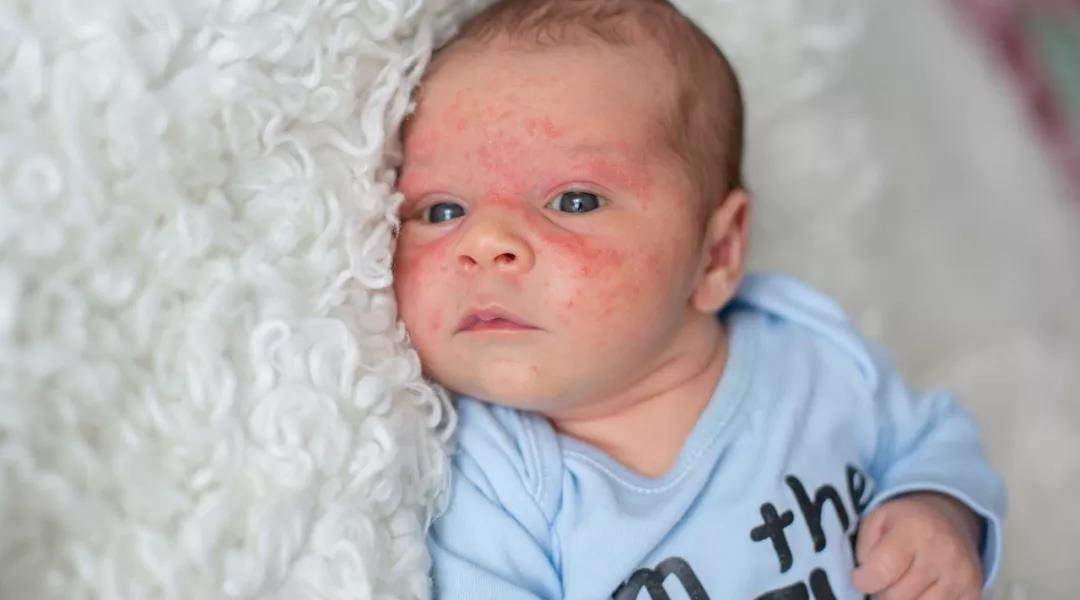
Some eczema will also have yellow water seeping out.
The yellow water will also form scabs to cover the rash surface. However, these scabs are not signs of healing, but signs of uncontrolled disease.
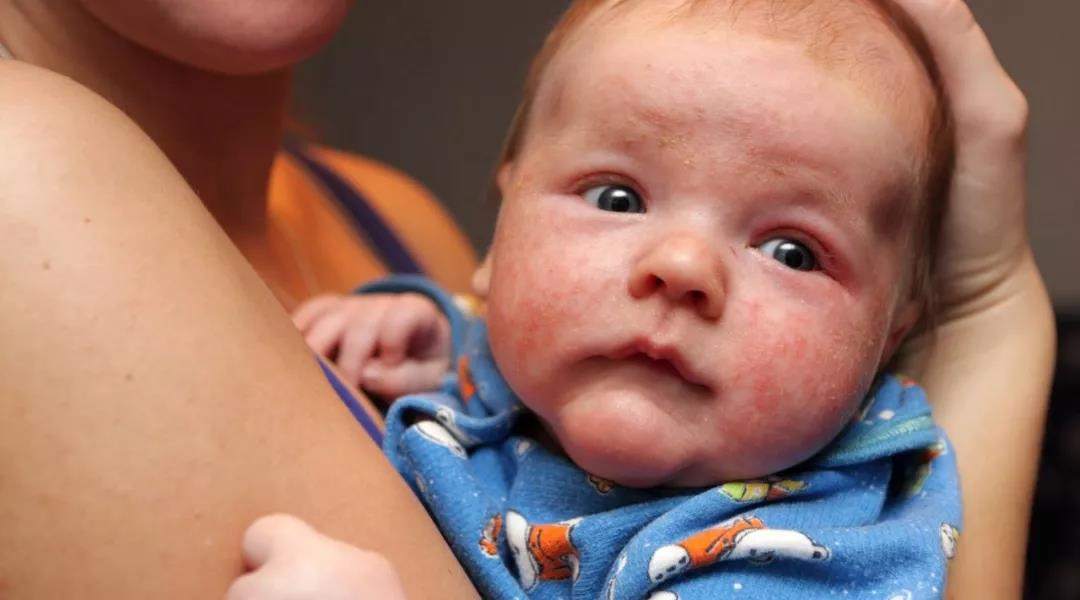
The characteristic manifestation of eczema after turning into chronic is that it feels rough and uneven, like sandpaper. Sometimes you can also see layers of peeling.
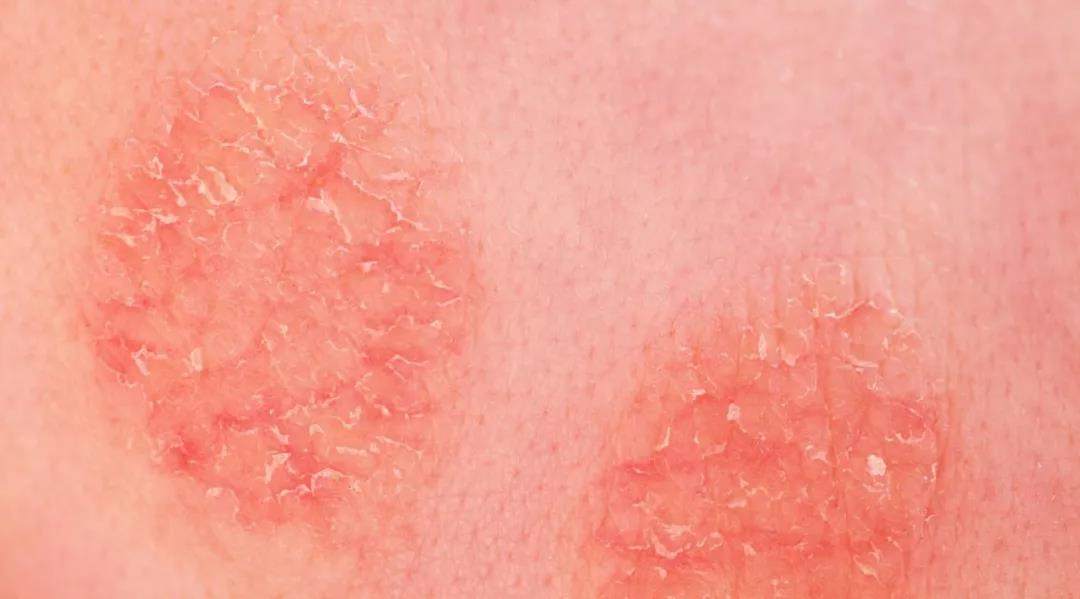
Because the baby will feel very itchy, the rash will often be scratched by the baby himself.
The itching and pain of eczema will repeatedly stimulate him, and the baby will become crying, sleep unwell and have a big temper.
Why does the baby grow eczema?
1. Skin irritation
When skin cells come into contact with external stimuli and allergens, immune cells will release various inflammatory factors.
If the child is sensitive and has excessive immune response, it will cause erythema, pruritus and other symptoms on the skin.
2. The skin barrier is damaged
The stratum corneum on the skin surface is the first line of defense between the body and the outside world. If this first line of defense is damaged, various external irritants will enter the skin, which is prone to skin inflammation and eczema.
The baby’s skin is different from that of adults. The reason why it feels very delicate is that the cuticle of the baby’s skin is thin.
If it is rubbed repeatedly or cleaned excessively, it is easy to damage the skin barrier, causing external irritants to contact the skin too much.
3. The skin is too dry
Eczema, many people take it for granted, is caused by too wet skin.
In fact, on the contrary, eczema skin is very afraid of dryness, so it is necessary to keep the skin moist frequently.
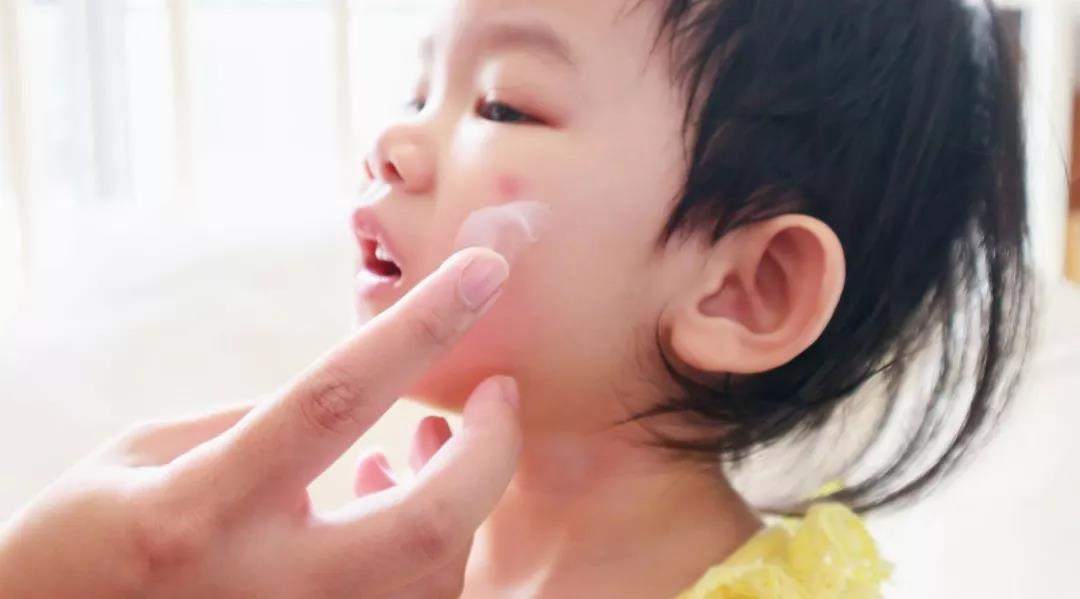
How does the child grow eczema do?
1. Do not wipe hormone ointment for fear of side effects.
Wrong!
If eczema symptoms are more serious, you need to take your baby to see a doctor in time, and the doctor will decide whether hormone therapy is needed according to the baby’s condition.
Baoma does not have to worry too much about the side effects of hormones. After years of clinical application, hormone ointment is relatively safe for children for external application, with little systemic absorption.
Regular use of drugs can better control symptoms. There is no need to [avoid medical treatment], so that the baby has been suffering from eczema.
However, at present, there is no drug that can cure eczema, and the key to avoid recurrence of eczema lies in nursing.
2. Clean your baby regularly
Wrong!
Repeated friction, excessive cleaning, use of alkaline bath gel, and too high bath water temperature may aggravate the symptoms of eczema, which should be avoided as much as possible to reduce the chance of eczema.
3. The skin is red and swollen, so you can’t wipe anything any more.
Wrong!
Keeping skin moist is the key point to reduce recurrent eczema.
Rubbing mild moisturizing products on baby’s skin can help skin cells maintain enough moisture, avoid aggravation of eczema symptoms and protect skin barrier function.
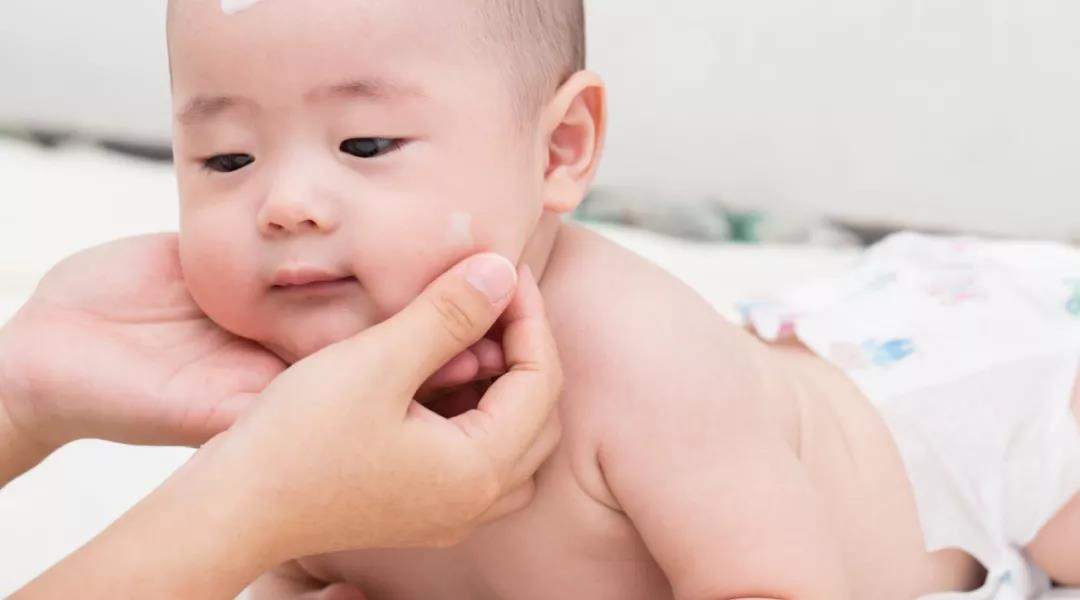
Some precious mothers will say: I have moisturized, but why is it not effective?
Because not enough has been done.
Baoma should pay attention when moisturizing the skin of eczema babies: the frequency should be frequent and the dosage should be sufficient. Severe eczema even requires closed wet compress to help protect the skin barrier.
